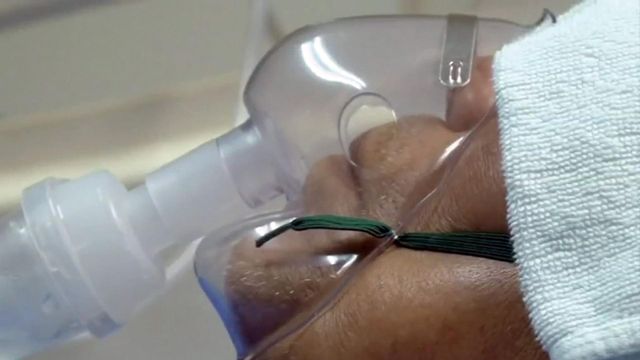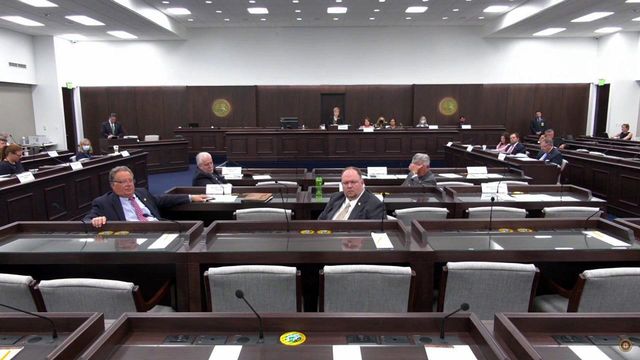Senate bill seeks visiting rights for patients in pandemic
A bill moving through the North Carolina Senate would require hospitals to allow patients to have visitors despite the coronavirus outbreak. Some say it could put the health of patients and health care workers at risk.
Posted — UpdatedSenate Bill 730, the "No Patient Left Alone Act," would override hospital bans on visits by family members or other designated advocates, guaranteeing that every patient could receive visits at "reasonable times."
When the pandemic began and personal protective equipment was in short supply, many hospitals barred visits from family members or others. But with increasing stocks of PPE, sponsors say it's time for hospitals to relax those restrictions.
Carlton Page, an EMT, told the committee Thursday that his 20-year-old daughter has been in the hospital three times in the past month, most recently for major surgery. He said hospital administrators have repeatedly ignored his family's requests to be with her.
"She had to unplug herself from some of her equipment by herself to try to get up and go to the bathroom," Page said. "I understand it’s a difficult time and it’s hard for the hospitals to make these decisions, but patients need an advocate."
Page said the visitor ban is difficult professionally as well as personally.
"It breaks my heart when I have to go pick someone up," he said, "to look at them and say, 'I’m sorry you cannot go with your loved one to the hospital,' when they’re in critical condition."
"We definitely have a problem. We have all heard it from real people. Real people who are going to live with the fact that their loved one died alone," said committee Chairwoman Joyce Krawiec, R-Forsyth. "We have to find a solution."
Some on the committee questioned whether the bill would tie hospitals' hands in infection-control emergencies, endangering the lives of health care workers. Some 600 have already died from COVID-19, said Sen. Terry Van Duyn, D-Buncombe.
"I think, when we ask our health care professionals to take care of people who are sick at the risk to their own lives, they deserve the ability to set the constraints around that, to protect not just their patients and visitors, but themselves as well," Van Duyn said.
"This is a problem. I’m not saying it’s not," she added. "But this is a health care decision, and we are not health care professionals."
Leah Burns, a lobbyist for the state hospital association, said the legislation would conflict with federal regulations as well as other regulatory guidelines that could affect hospital licensure. She urged lawmakers to allow a working group of doctors, patient advocates and infectious disease experts to come up with best practices instead of writing something into the law.
Burns said her own mother had been hospitalized for major surgery, and she wasn't able to be with her.
"I’m not discrediting any of the stories that have been told during this committee because they are awful and they are sad," she said. "I appreciate that because I have felt that way, too, during this. But our role in health care is to keep people safe and to protect them."
"We need more flexibility. We don't know what's going to happen," she continued. "We may have a huge PPE shortage a month from now. We may have a huge COVID influx a month from now."
Krawiec said lawmakers will continue talking with health care officials, but she said the bill will move forward.
"We’re going to work with everybody to try to make it right," she said, "but we are definitely going to fix it because this cannot happen."
The bill passed the committee with one dissenting vote and could be on the Senate floor next week.
Related Topics
• Credits
Copyright 2024 by Capitol Broadcasting Company. All rights reserved. This material may not be published, broadcast, rewritten or redistributed.






